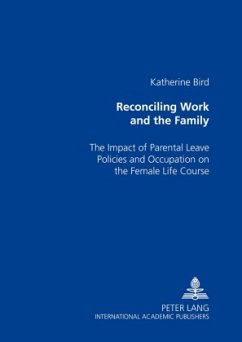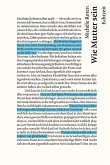Many women are confronted each day with the problem of trying to reconcile their employment and family commitments. The ongoing discussion of this problem shows that satisfactory solutions have not yet been discovered. A period of leave from paid employment on the birth of a child has for many years been portrayed as a means to resolve this dilemma. Using longitudinal methods and a life-course approach, this book examines how changing leave regulations and occupational opportunity structures have affected when, where and how long women in Germany work. Policy makers' continued failure to address the underlying issue of the division of paid and care work between women and men as social groups has cemented traditional gender relations and not solved the problem of reconciliation.
Bitte wählen Sie Ihr Anliegen aus.
Rechnungen
Retourenschein anfordern
Bestellstatus
Storno








